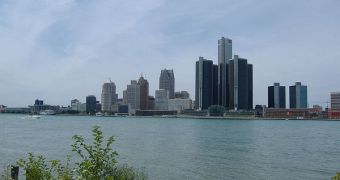Scientists at the University of Michigan have recently released a new report saying that more than 25 percent of Arabs living in the Greater Detroit area have been discriminated against, or otherwise abused, following the unfortunate incidents of September 11, 2001. The personal and familial abuse was based on either race, ethnicity or religion, the study found, and this state of affairs could lead to higher chances of adverse health effects within this minority, if action against it is not taken soon.
In the new research, which is published in the December 17 issue of the respected American Journal of Public Health, the UM group shows that Muslim Arabs were worse off than anyone else. Arabs in general reported much higher abuse rates than Christians, for example. The scientists in charge of the investigation say that those who admitted to being abused tended to exhibit a lot more psychological distress, lower levels of personal happiness, as well as a diminished perception of their own health status, as opposed to people who reported no harassment or personal/familial abuse.
The lead author of the new investigation was Department of Emergency Medicine clinical instructor Aasim I. Padela, MD, who is also a Robert Wood Johnson Foundation Clinical Scholar in the UM Department of General Medicine. The expert says that the truly disturbing fact about these findings is that they were recorded in Greater Detroit, which has had a well-established Arab community for many decades. “Negative associations of perceived post-911 abuse or discrimination might be much worse in less concentrated Arab populations within the United States,” Padela believes.
The 490,000 people that live in the area represent the largest concentration of Arabs outside the Middle East, the UM team says. They also are the third largest minority in Detroit, but, in spite of all that, they are still heavily discriminated against. “Untreated psychological distress leads you to do something bad, like smoking, drinking, or other unhealthy responses. It becomes a vicious cycle. We may be missing an entire spectrum of people who are most stigmatized,” Padela adds.
“We know that anti-Arab and anti-Muslim hate crimes are still higher than they were pre-9/11. Years after, we think this is over. But not only is it not over, it's having negative health consequences and we're not doing anything to address it,” the expert concludes, quoted by e! Science News.

 14 DAY TRIAL //
14 DAY TRIAL //